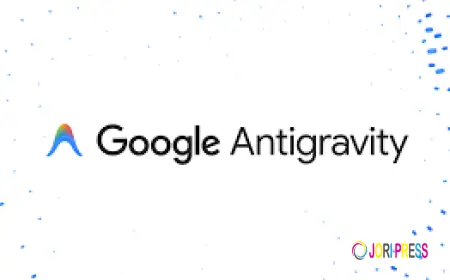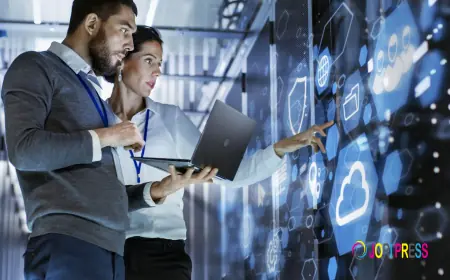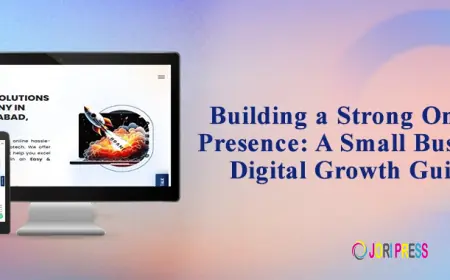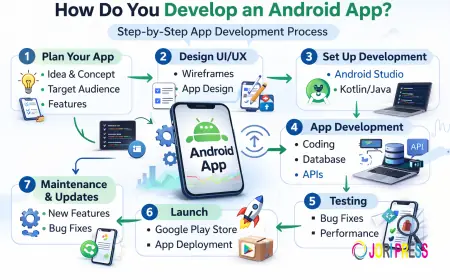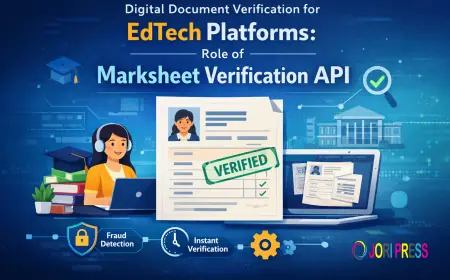How Will AI Token Development Reshape the Future of Decentralized Apps?
AI tokens
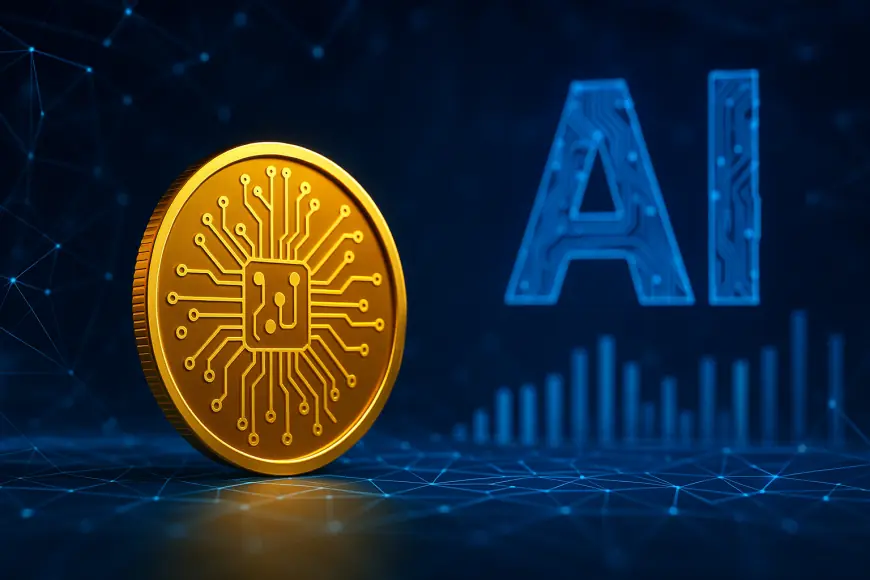
Artificial Intelligence (AI) and blockchain technology are two of the most disruptive innovations of the modern era. When combined, they create opportunities far beyond the sum of their individual capabilities. One of the most promising intersections between the two lies in AI token development, which integrates AI-driven functionality into blockchain-based ecosystems, particularly within decentralized applications (dApps). As decentralized applications mature, the demand for advanced automation, personalization, and intelligent decision-making has grown exponentially. AI tokens are emerging as the bridge between smart algorithms and trustless blockchain execution, paving the way for a new generation of dApps that are more adaptive, efficient, and user-centric. This transformation is not just a technical shift—it is a complete reimagining of how decentralized ecosystems function, monetize, and scale.
Understanding AI Tokens and Their Role in dApps
AI tokens are blockchain-based assets that power AI-driven features, algorithms, or data models within decentralized ecosystems. These tokens may serve as utility tokens for accessing AI-powered services, governance tokens that give holders voting rights over AI model training or upgrades, or even reward tokens for contributing data that improves machine learning accuracy. In decentralized applications, AI tokens can facilitate seamless access to AI APIs, predictive analytics, and autonomous agents that make decisions on behalf of users or organizations. For instance, a decentralized finance (DeFi) dApp could integrate AI-powered risk scoring for loans, where borrowers and lenders interact through a tokenized economy that rewards accurate data input and penalizes fraudulent activity. This merging of AI and blockchain not only improves the functionality of the app but also ensures that AI models operate transparently and without centralized control.
The Convergence of AI and Decentralized Architecture
The decentralized nature of blockchain technology addresses some of the biggest concerns about AI—namely transparency, bias, and control. In centralized AI systems, model training and deployment are often opaque, making it difficult to audit how decisions are made. By contrast, when AI models are integrated into blockchain-based dApps, the processes behind data collection, model updates, and decision-making can be recorded on a public ledger. This verifiability fosters trust among users and eliminates reliance on a single centralized authority. Moreover, decentralized storage solutions allow AI models to access vast amounts of distributed, high-quality data without compromising privacy. Combined with token incentives, users are encouraged to share anonymized datasets that fuel AI learning, thereby creating a self-sustaining ecosystem where data quality improves continuously.
Enhancing User Experience Through AI-Powered Personalization
One of the most immediate benefits of integrating AI tokens into dApps is the potential for hyper-personalized user experiences. In traditional apps, personalization is often handled through centralized user profiling, which raises privacy concerns. With AI token-powered dApps, personalization can occur locally or in a decentralized manner, using AI agents that process user data without transmitting it to central servers. For example, a decentralized content-sharing dApp could deploy AI models that curate recommendations based on user behavior while rewarding participants with tokens for engaging with relevant content. This approach not only enhances user satisfaction but also ensures that data ownership remains firmly with the user, a key principle in Web3 design philosophy.
Driving Efficiency in DeFi and Automated Trading
In the decentralized finance sector, AI token integration can lead to smarter and more efficient markets. AI algorithms can execute real-time market analysis, forecast asset price movements, and optimize trading strategies, all governed by transparent token-based incentive mechanisms. For example, AI-powered decentralized exchanges could allow traders to subscribe to algorithmic trading bots using AI tokens, paying for execution fees while retaining complete custody of their assets. Similarly, AI tokens could be used to reward liquidity providers whose strategies are enhanced by machine learning insights, increasing overall market stability and liquidity depth. By reducing human error and increasing execution speed, AI tokens can help DeFi platforms become more competitive and resilient.
Smart Governance in DAOs
Decentralized Autonomous Organizations (DAOs) are natural beneficiaries of AI token development. Traditional DAO governance often suffers from slow decision-making processes and low voter participation rates. With AI token-powered governance systems, DAOs could automate certain administrative functions, analyze proposal impacts before voting, and even flag proposals with potential security risks. Token holders could delegate decision-making authority to AI-powered representatives that execute votes aligned with pre-set preferences. These AI delegates could be audited via blockchain records to ensure that they remain compliant with the will of their constituents. As a result, DAOs could become more agile, responsive, and data-driven in their operations.
Improving Security and Fraud Detection
Security remains one of the most critical issues in decentralized applications. Smart contracts are immutable, which means that vulnerabilities can have devastating consequences if exploited. AI token-enabled security systems can continuously scan blockchain transactions, monitor contract activity, and detect unusual patterns indicative of fraud or hacking attempts. Token rewards can incentivize community members to contribute to security audits or run AI-powered monitoring nodes. In addition, decentralized insurance dApps can use AI models to assess risk in real time, ensuring faster payouts for valid claims while reducing false positives. By integrating AI directly into the security infrastructure, the risk profile of the entire dApp ecosystem can be dramatically improved.
Tokenomics of AI-Powered dApps
The tokenomics behind AI-integrated decentralized applications is a critical component for their sustainability. AI tokens can serve as a primary utility within dApps, enabling access to premium AI services such as advanced analytics, faster computation, or exclusive data feeds. Governance rights could be tied to token holdings, allowing the community to collectively shape the direction of AI model development. In some cases, staking AI tokens could grant users early access to updated AI models or participation in revenue-sharing schemes. This alignment between economic incentives and AI development creates a virtuous cycle where user engagement directly contributes to the growth and improvement of the platform.
Cross-Chain AI Token Ecosystems
As blockchain interoperability improves, AI tokens can be designed to function across multiple networks, creating unified AI-powered experiences in different dApp ecosystems. Cross-chain AI token infrastructure allows data and model outputs to be shared securely between ecosystems, enabling new forms of collaboration. For example, an AI token used in a healthcare dApp could also be accepted in an insurance dApp to provide patient risk assessments, or in a supply chain dApp to evaluate vendor reliability. This interconnectivity magnifies the utility of AI tokens and creates a more cohesive decentralized AI marketplace where value flows seamlessly across industries.
Real-World Use Cases of AI Token-Powered dApps
Several pioneering projects are already exploring AI token integration in decentralized applications. In the creative sector, AI tokenized platforms allow artists to collaborate with AI models that generate music, art, and literature, while rewarding contributors based on the popularity of their creations. In decentralized marketplaces, AI-powered recommendation engines help buyers discover relevant products more efficiently, with token rewards for accurate product tagging and review verification. In the gaming industry, AI tokens are being used to fuel intelligent NPC behavior, adaptive difficulty scaling, and dynamic in-game economies. These examples represent just the tip of the iceberg, as AI token technology continues to evolve and expand into new sectors.
Overcoming Challenges in AI Token Adoption
Despite its potential, AI token integration faces several challenges. Data privacy remains a top concern, as even anonymized datasets can sometimes be reverse-engineered to reveal personal information. Blockchain scalability is another limiting factor, as AI models require significant computational resources, which can be costly on-chain. There is also the challenge of governance—ensuring that AI models evolve in a way that benefits the entire community and not just a few large token holders. Regulatory uncertainty around AI usage and blockchain-based assets could also slow adoption, especially in regions with strict data protection and securities laws. Addressing these challenges will require collaborative efforts between developers, regulators, and user communities.
The Road Ahead: A Decentralized AI-Driven Future
As AI token technology matures, decentralized applications will become smarter, more secure, and more adaptive to user needs. The fusion of AI and blockchain will enable dApps that can self-optimize, predict market trends, and automate complex decision-making processes—all while operating transparently and without centralized control. Over time, the line between AI-powered automation and decentralized governance will blur, creating ecosystems that are both self-sustaining and community-driven. With the right tokenomics, governance models, and regulatory clarity, AI tokens could become the backbone of next-generation dApps, unlocking unprecedented innovation in finance, healthcare, gaming, supply chain, and beyond.
Conclusion
AI token development represents a paradigm shift for decentralized applications, combining the analytical intelligence of AI with the trustless, transparent architecture of blockchain. By enabling intelligent automation, personalization, security, and governance, AI tokens are set to redefine how dApps are built, operated, and monetized. The future of decentralized applications will be shaped by AI-powered ecosystems that are not only more efficient and adaptive but also fundamentally aligned with the principles of decentralization. For developers, investors, and users alike, the coming decade offers an exciting frontier where AI tokens play a central role in shaping the digital economy.
What's Your Reaction?
 Like
0
Like
0
 Dislike
0
Dislike
0
 Love
0
Love
0
 Funny
0
Funny
0
 Angry
0
Angry
0
 Sad
0
Sad
0
 Wow
0
Wow
0


